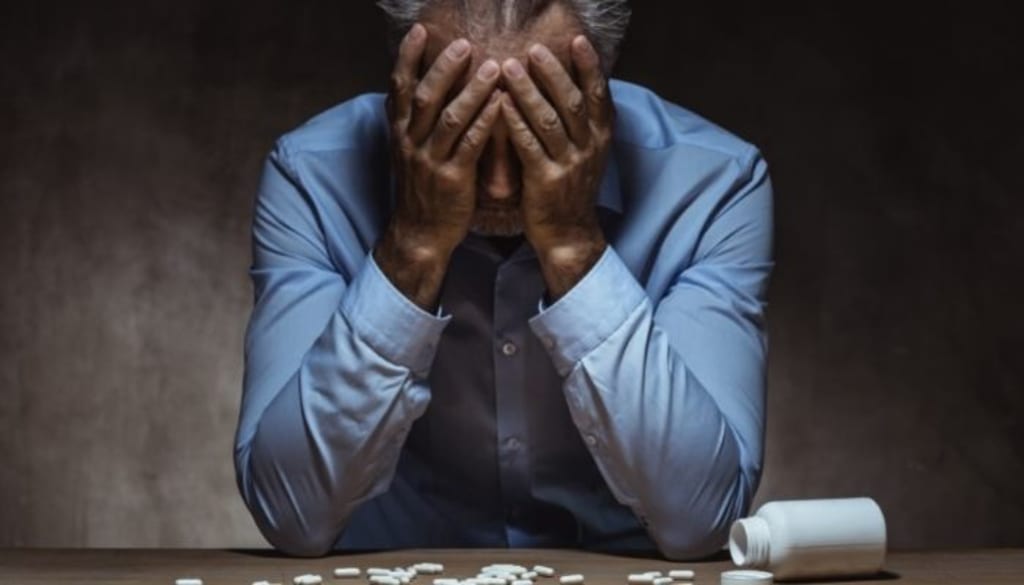How effective is drug detoxification?
Side effects and how they work

Medically managed withdrawal and drug detoxification can be safe and effective ways to get your substance abuse issues under control.
What is Drug Detoxification?
A natural process for removing a substance from your body is called drug detox. A professional drug detox program is a natural process of eliminating a substance from the body. 1
Drug detox is designed to reduce the physical harm caused by quitting a drug or drugs after a prolonged period of use.
It is important to understand the differences between professional detox and substance abuse rehab. Although "detox" and rehabilitation are often interchangeable, substance abuse rehabilitation consists of a combination of ongoing services that aim at socially and psychologically rehabilitating someone who has been addicted to drugs. Medical detox centers on the other hand aim to stabilize patients, reduce withdrawal symptoms, prevent withdrawal from being dangerous, and assist them in transitioning into a substance abuse rehab program or another form of continuing care.
What are the Side Effects of Drug Detox?
Side effects and symptoms of drug withdrawal can occur in those who are going through drug detox. Dependent on the substance, side effects can vary. Common side effects of drug detox include:
• Mood swings, anxiety, and depression can cause mood changes.
• Symptoms such as shaking, nausea, vomiting, flu-like symptoms, and headaches can all be caused by body changes.
• They feel compelled to eat, especially if they're trying to quit using the drug.
How do you find a drug detox center?
Sometimes detoxification is the first step to addiction treatment. You can find a detox center by speaking with your doctor or therapist, searching through the Substance Abuse Mental Health Services Administration (SAMHSA), calling a drug addiction helpline, or talking directly to your doctor.
What is the Detoxification Process?
Three components are necessary for professional detoxification from alcohol or other drugs: 1
Evaluation: This is where detoxification specialists perform thorough assessments of the patients' psychological and physical condition. A person's initial evaluation may include a thorough assessment of their acute intoxication, withdrawal potential, and biomedical conditions. The clinical professionals can then recommend the appropriate detoxification level and develop a personalized treatment plan for each patient.
Stabilization: This includes a detox center that follows an individualized treatment plan, its prescribed therapies, and medications to help a patient go through safe withdrawal.
Facilitating a patient's transition to long-term treatment for substance abuse. This can help a person to sustain their recovery and prevent relapse. Because detox alone doesn't address the psychological and social issues of substance abuse, it is not enough to sustain long-term recovery. The goal of detoxification is to prepare clients to enter the next phase of their rehabilitation. This could be either short-term residential treatment or long-term residential treatment.
These are the main components and goals of detoxification. However, each patient's individual goals, treatment duration, and overall treatment process may differ. A professional detoxification center may use various medications to assist patients with their withdrawal symptoms.
Tapering & Detox
Tapering is the process of gradually weaning someone off of medication to reduce withdrawal symptoms. Tapering involves the administration of medications is gradually decreasing doses according to a prescribed schedule by a medical staff member. This technique can be used for opioid withdrawal, benzodiazepine, and alcohol administrations. The technique is sometimes used when medications are administered for benzodiazepine, alcohol, or opioid withdrawal.
Stop using drugs cold turkey
Certain substances can be dangerous if you stop using one or more drugs abruptly or all at once. Sudden withdrawal from alcohol after long-term, chronic use can lead to seizures, delirium, and even death. Although it is rare for opioids to be fatal, abruptly quitting them can cause severe side effects such as nausea, diarrhea, flu-like symptoms, and other unpleasant symptoms. Sometimes, moderate to severe withdrawal from opioids can also include drug cravings. These symptoms can be overwhelming and may cause a person's return to opioid use or relapse.
Before you quit using any cold-turkey drug, consult your doctor. To determine if a medically managed detox program would be right for you, it may be a good idea to contact a detox center.
Take our Substance Abuse Self Assessment
If you suspect that you or someone close to you may be suffering from drug addiction, take our 5-minute self-assessment on substance abuse below. The 11 questions in the evaluation are yes/no questions that can be used to help assess the severity of a substance abuse disorder. The result is confidential and free of charge.
Do I have to detox at home?
Professional detox services such as those provided by American Addiction Centers are popular options for people who want to detox safely and comfortably. Some people may find it more difficult to keep the course when their home environment is full of people and things that could trigger a relapse. It can also prove to be dangerous in rare cases. You may find it beneficial to contact a local drug detox center, talk to your doctor or therapist, or call the drug addiction helpline for free information about how to detox from your drug in a safe environment, and what your treatment options are. Some detox centers offer same-day detox depending on your location and other factors.
What happens after detox?
A detox program alone will not be enough to help someone achieve long-term recovery. It is just the beginning of treatment for addiction. After completing their detox, many patients choose to go into a substance abuse rehab program. A person's substance abuse needs to be addressed along with any legal, medical, psychological, vocational, or social problems. The treatment should be tailored to the person's gender, age, race, and culture. Although medication may be used, behavioral therapy is the most common form of treatment for substance abuse.
To be successful in addiction treatment, people may need to redefine what recovery looks like. Addiction treatment aims to restore a person's productive functioning in their community, family, school, or job. Addiction is similar in nature to other chronic diseases, so some people may relapse. However, this doesn't mean that they aren't trying hard enough.
Are there different types of detox?
There are many professional detoxification programs that can be tailored to meet the needs of each patient. Many detoxification programs use the "medical model" to detoxify. This means that a team of doctors and nurses uses certain medications to detox people.
Detoxification can be performed in many settings, at different intensities. Five detoxification levels of care are identified by the Substance Abuse and Mental Health Services Administration. They include:
Ambulatory Detoxification without Extended On-Site MonitoringThis detoxification program is offered on an outpatient basis. It is usually only available to patients who have sufficient support outside of treatment.
Ambulatory Detoxification with Extended On-Site MonitoringThis detoxification is similar in nature to the above placement level, but it requires credentialed nurses to monitor patients for many hours each day.
Clinically Managed Residential DecoxificationThis detoxification is monitored 24/7 and can sometimes be called "social detoxification". It focuses on peer support and social support, with minimal medical oversight.
Inpatient Medically Monitored DetoxificationThis care level is more restrictive than that provided by the Clinically Managed Residential Detoxification Placement level. Patients suffering from withdrawal symptoms may require 24-hour supervision and support.
Medically Managed Inpatient DetoxificationThis is the highest level of detoxification program care. It provides 24-hour supervision and cares for patients suffering from withdrawal symptoms.
Medical detoxification can be done in an outpatient, residential, or inpatient setting. It may also exist in conjunction with a larger substance abuse rehabilitation program, or it may operate independently. Inpatient detoxification is more appropriate for patients with complex medical or mental needs.
How much does drug detox cost?
The cost of drug detox can vary depending on how you pay, where you are going, and what level of care you receive. While insurance policies can cover a portion or all of the cost of detox, there are free programs and programs that accept Medicaid. You can check below to see if your insurance covers a detoxification program at American Addiction Centers.
Commonly Asked Questions about Detox
What is a Rapid Detoxification?
A "rapid detox" program aims to induce withdrawal in controlled conditions where doctors can use medication to accelerate more established withdrawal protocols. There were once a number of controversial attempts to induce withdrawal by sedating patients. However, these methods are not well-proven, dangerous, and unproven. This detox is discouraged by the American Society of Addiction Medicine, which warns that there are high risks of adverse reactions and even death.
Who are the Drug Detox Process Participants?
A patient can access doctors, psychiatrists, and nurses at a medical detox center. Some detox programs might also include therapists, substance abuse counselors, and dietitians.
What is the average drug detox time?
A majority of patients can complete a drug detox program within a week. The length of drug detox depends on many factors such as the type of drug used, the amount of drug taken, the duration of drug use, and the individual's overall health.
About the Creator
Mithun Debnath
Blogger, Project Manager, Business advisor, SEO firm Director and Digital Marketing Expert. Helped 5,000+ Sites to grow their business.
Life is short, so I also manage to squeeze in horse riding, car racing and playing with geeky gadgets.






Comments
There are no comments for this story
Be the first to respond and start the conversation.